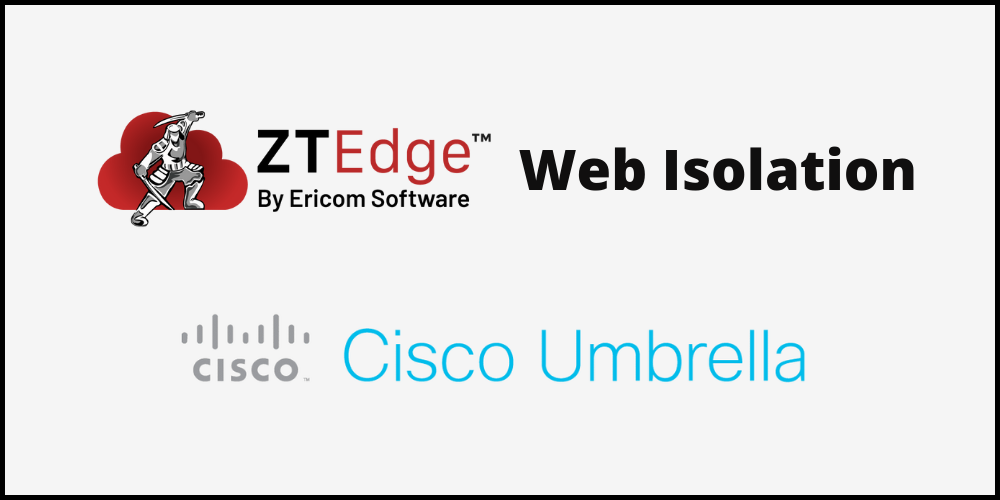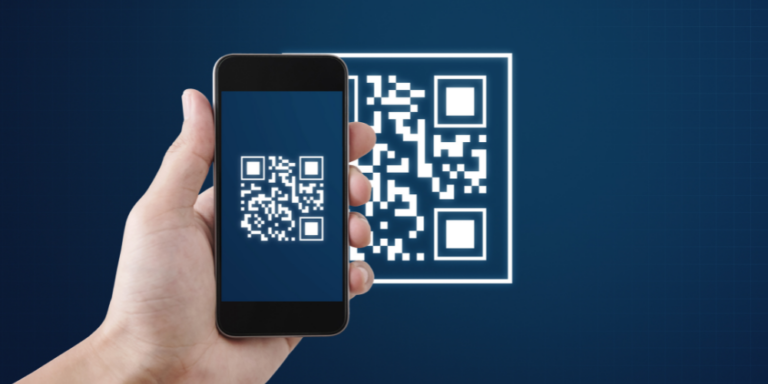Cisco Umbrella and Web Security Appliance Customers Adopt Ericom’s ZTEdge Web Isolation Solution for RBI SASE Use Cases
Posted on January 25, 2022

Earlier this month I blogged about the increase in market adoption of remote browser isolation (RBI) in 2021, driven primarily by organizations applying RBI to address web and email security within Secure Access Service Edge (SASE) and Zero Trust security frameworks. Analysis of Ericom engagements in 2021 revealed that Ericom RBI was used with a broad set of Secure Web Gateways (SWGs) and NGFWs, representing a who’s who of the largest security vendors in the world, including Cisco’s popular Umbrella cloud offering and Web Security Appliance (WSA) on-premises security gateway.
Cisco Customers and RBI
Adding RBI to Cisco Umbrella or Cisco Web Security Appliance provides organizations with a strong layered defense for web security. Let’s see how RBI interacts with a DNS or proxy-based security gateway, with Umbrella as our example. When Umbrella’s threat and risk data determines that web traffic is suspicious or risky, it forwards the traffic to Ericom’s RBI solution, ZTEdge Web Isolation. ZTEdge Web Isolation renders the website in a remote cloud container, so that phishing sites, ransomware, zero-day malware, and other advanced web threats never reach endpoints. Whether users browse to a malicious site directly or by clicking a URL embedded in a phishing email, they are completely safe since no web content is ever executed directly on their devices. Safe rendering data representing the website is sent to their device’s browser, providing a safe, fully interactive, seamless user experience. Attached files are sanitized before being transmitted to endpoints, ensuring that malware within downloads cannot compromise users’ devices.
Ericom’s RBI integration with Cisco Umbrella offers additional benefits by enabling data sharing controls for users who are interacting with the web and cloud applications. For example, policy-based controls may be applied to restrict web browser capabilities such as printing, downloading and copy/pasting content to or from websites. Sites that might be phishing sites, such as those that are newly created or linked to from emails, can be automatically opened in “read-only” mode to prevent users from entering data such as login credentials. RBI offers many additional protections — check out our white paper to learn more about the data security benefits of remote browser isolation.
Why Ericom?
When we speak with Cisco customers about their choice of Ericom’s RBI versus alternatives, conversations quickly turn to Ericom’s distinct advantages in end-user experience, performance, ability to accurately render websites and web/cloud applications, as well as the Ericom team’s support as they evaluated our solution. If your organization is considering adding RBI, “Key Questions to Ask RBI Solutions Providers” provides excellent guidance regarding the most important capabilities to consider when evaluating solutions.
Want to Learn More about the Cisco-Ericom Integrated Solution?
Ericom’s Group CTO Mendy Newman has helped a number of organizations deploy Ericom RBI with their Cisco security gateways. He recently recorded a short video that covers the integration process and demonstrates the end user experience of the combined solution. Of course, nothing takes the place of a live demonstration, where we can drill down into your specific use cases and questions. I urge you to contact us to arrange a 30-minute meeting to learn how RBI can be used to address your organization’s specific needs.
About Gerry Grealish
Gerry Grealish, ZTEdge CMO, is a security industry veteran, bringing over 20 years of marketing and product experience in cybersecurity, cloud, analytics, and related technologies. Responsible for marketing and business development, Gerry previously was at Symantec, where he led the product marketing and go-to-market activities for the company’s broad Network Security portfolio. Prior to Symantec, Gerry was at Blue Coat, which he joined as part of Blue Coat’s acquisition of venture-backed Cloud Access Security Broker (CASB) innovator, Perspecsys, where he was Chief Marketing Officer.Recent Posts

Air Gapping Your Way to Cyber Safety
Physically air gapping enterprise networks from the web is a great way to protect operations, keep data safe … and squelch productivity. Virtual air gapping is a better approach.

Motion Picture Association Updates Cybersecurity Best Practices
The MPA recently revised its content security best practices to address, among other challenges, the issue of data protection in the cloud computing age.

FTC Issues Cybersecurity Warning for QR Codes
QR codes on ads are a simple way to grab potential customers before they move on. No wonder cybercriminals are using QR codes, too.